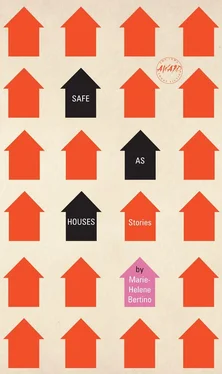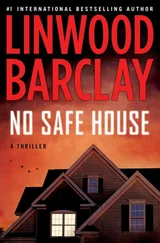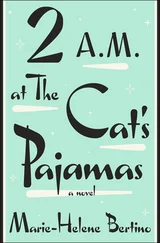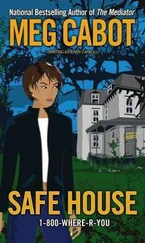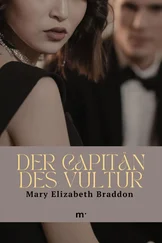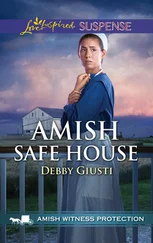Christopher looks at me with scared eyes.
Sister Charlene exhales. “Christopher, you are now the first child ever to go on red. Miss Ruby, take him to the office.” Balancing the weeping Tyler, she leans over Christopher. “While everyone else is getting their valentines, you will be sitting in the office. We will pass out your valentines in… your… absence.”
She turns on her heel and leads the ducklings back into the building. Christopher and I are alone in the courtyard, where it has begun to rain. From his backpack he pulls a kid-sized Spider-Man umbrella and opens it. As we walk, he looks around wildly. Something in him knows there is a way to get out of going, but he’s too young to know what it is.
…
I leave Christopher in the office and rejoin the class. Tyler milks his injury, holding an ice bag to a swollen knot on his head. He gets to read on the beanbag while we clean up the morning’s art supplies. Every kid wants to sit next to him, more than they want ice cream. More than they want God’s love. They beg, they twist, they plead. So Sister Charlene lets them take turns, two at a time. At what age does the sick kid become the least popular?
I think of Christopher in the office. This is his Valentine’s Day, and he has to spend it surrounded by brown light and the aggressive penciling of fat Sister Georgia.
I imagine my anger as a thing I can hold and place it beside me. Anger, you are one ugly-looking pile of crap.
The happiness of the valentine promenade seems forced and wrong. I ask if I can be excused.
Sister Charlene glares but nods.
…
Christopher sulks on a folding chair, legs high above the floor. His weeping has downshifted to small chokes of despair.
Sister Georgia looks up when I come in. I ignore her.
“We have to stop meeting like this.” I take the chair next to him.
He raises his tear-streaked face. “Is Tyler okay?”
“He’s fine, Christopher. He’s a big baby. He’s the patron saint of being a baby.”
Sister Georgia clears her throat.
I clear mine back at her. I feel a soft pressure on my hand. It is Christopher, reaching out to me. “I am a bad boy.” His eyes are pretty with tears. He shakes his head, as if there is nothing to be done in the matter of him.
“You are.” I nod. “But there are worse things.”
The door to the office swings open, revealing Sister Helena.
“Ruby,” she says, “there’s a cowboy in the courtyard to see you.”
…
He is in his Lone Star uniform, complete with steakhouse-issued chaps, wig of red corkscrew curls, and cowboy hat, which he doffs when he sees me.
“Howdy.” He holds his lasso. “Happy Valentine’s Day.”
“Clive.”
“You haven’t called in a while.”
He releases the rope and it hovers over the ground obediently. He keeps small circles going as we talk. He says to the center of the swirling rope, “Come back.”
I strain toward the office to hear whether Christopher is crying again. All I can hear is Clive’s rope. “That’s so nice,” I say. I mean it. It’s a good day when someone, anyone, wants you. “You’re about six months and a couple weeks too late.” How amazing, I think, to be completely free of this, and how sad, and how pointless. Why do we pretend the people we love are special? I light a cigarette. The shelf life of getting over a rodeo cowboy is one year, tops.
“It’s never too late, Rubes.”
“That statement is inaccurate, Clive.”
He looks up from his rope for the first time. “What do you have to stay around for?”
Around the area of my heart, I feel a sharp pain. It is allegiance, or loyalty.
“Tomatoes,” I say. “You have to talk to them in a certain way. The soil has to be right. You can’t just throw them in.”
Suddenly, in a motion I at the last second perceive could be aggressive, Clive advances toward me. When he is inches away he halts. I exhale smoke into his face. I hear the sizzle of the whip and feel cool air around me. The leaning tower.
“Enough,” I say. One by one, the columns of rope fall against the concrete. He bows his head, summons the rope.
“Good-bye, Clive.” I toe my cigarette out and walk away.
He rat-tails the wrought iron fence where the tomato plants sleep. It makes a pa - twink sound each time. Pa-twink . I used to love all the sounds of him, but now his tricks seem empty and tinny, the activities of a little boy.
Little boy. I am anvilled by a brilliant, sober idea.
“Clive,” I say, “bring your rope and follow me.”
Christopher is staring into a corner, little-boy mournfully. When he sees Clive his eyes widen.
“This is my friend,” I say. “He wants to show you some tricks.”
“Me?” he says.
“Just you. All the other kids can go to hell.”
Behind the desk, fat Sister Georgia clears her throat loudly.
I sit next to Christopher. “Do your thing, Clive.”
Clive bows to us. In our chairs, we bow. Clive gallops around the office. He yee-haws, he hitch-kicks, he yippie-skiddly-doos. He hurls his lasso to every corner of the room. When it is time for the leaning tower, Christopher can barely contain himself. Inside the whistling column of rope he claps and screams. Even fat Sister Georgia is moved. Over her paperwork, a smirk. When it is over, Christopher throws his arms around Clive’s knees. In the convent office that day, a private rodeo show for a bad little boy.
…
“You gave him the wrong message,” Sister Charlene says. It is after dismissal and I am being disciplined. We sit on beanbag chairs. Pinned to our blouses, construction paper hearts say Charlene! and Ruby! “You rewarded him for being bad.”
“I certainly understand,” I say, “how you could see it that way.”
…
Sister Helena and I order Chinese and eat in the kitchen. The other sisters are sleeping, reading, or praying. We are lit by a single track of lights and sit with the wide counter between us, passing containers of shrimp fried rice and corn soup back and forth. I tell her about Christopher’s Valentine’s Day. I reach the part when he realized he would not be passing out his valentines when my throat closes and I am unable to breathe. I put my fork down.
“Sister,” I say, “I am going to cry.”
She touches her silverware lightly with her fingertips and nods.
I have big eyes that don’t produce tears often. When they do, they are prizewinning bulbs. Elephant tears. The first two smash against my collarbones.
We continue to eat. The soup is salty and warm.
I don’t want to cry in front of Sister Helena. My eyes twitch with effort; my throat fills with sorrowful carbonation. Sister Helena does not seem uncomfortable as she eats her fried rice.
I croak key words — Christopher, robot, why. “He has trouble printing. You know how long it probably took him to write his name on fourteen valentines? One lowercase h alone takes him five minutes.”
Remembering the curved handle of his Spider-Man umbrella, I find it impossible impossible to continue. I cover my eyelids with my thumb and forefinger and shake the worst of it out. Sister Helena watches, giving me permission in her quiet, reverent way.
“I’m almost finished,” I squeak.
She moves on to her bowl of corn soup.
Finally my crying subsides. I resume eating a forkful of shrimp. I say, “You tell me this: If God created everything, why did he create the brain I have that holds these thoughts? If he wanted us to think of nothing but sweet peas, why not engineer our brains so we can think of nothing but sweet peas?”
“What makes you different makes you special,” she says. “Don’t wish it away.”
Читать дальше
